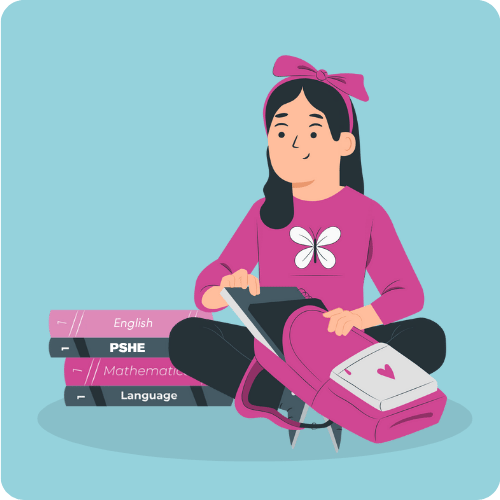
Why financial education belongs in every primary school
Preparing children for lifelong financial wellbeing
We want every child to receive a meaningful financial education that prepares them with skills for life. That includes building the confidence, curiosity and self-awareness to handle the everyday ups and downs of money as they grow.
The financial education children receive early on shapes how they think, feel and act with money. From understanding where money comes from to making thoughtful decisions about how to use it, great financial education helps children connect their values and circumstances to the choices they make, and feel empowered to make the most of life’s opportunities.
At JFF, we understand that the financial environment is increasingly complex and young people will continue to face challenges, like inequality and debt, that are often beyond their control. Rather than simply encouraging children to ‘do better’ with money, we focus on equipping them to make informed money choices that benefit themselves, other people and the world around them.
Read on to learn more about the benefits of financial education and the impact JFF has through our work training educators, delivering unbiased resources, and advocating to ensure no child misses out.
Why financial education matters for your students
Why focus on financial education from a young age?
Early education is so important because it lays the foundational skills children need as they grow and develop. Financial literacy, including knowledge, skills and emotions around money, is just as essential as reading and maths in preparing children for adult life.
We know that the skills and values we use to manage money are developed as early as ages 3 to 7. But too often, children do not access essential financial lessons until secondary school, when gaps in their ability to understand and relate to money are already in place.
Starting financial education in primary school gives every child the opportunity to develop a baseline understanding of money when it matters most – right at the age when their beliefs, behaviours and attitudes are forming.
What is quality, unbiased financial education?
Quality financial education helps children make sense of money in their world — not just how to manage it, but how to think and talk about it with confidence.
Unbiased financial education is grounded in real life, and isn’t influenced by any one particular product or system. It gives children space to explore questions, values and everyday choices, and supports them to build strong money habits that fit their circumstances.
As a charity, we focus on improving financial education for every child. Our resources are curriculum-linked, inclusive and designed to support teachers to deliver meaningful, age-appropriate learning that lasts.
How we support educators in primary schools
We deliver financial education through our LifeSavers programme — a free, whole-school approach designed by teachers, for teachers.
LifeSavers provides the training, resources and ongoing support schools need to embed financial education confidently across the curriculum. Everything is age-appropriate, values-led and ready to use — with clear links to PSHE, maths and wider school priorities including Ofsted and personal development.
It’s practical for busy teachers, flexible for different settings, and rooted in what matters most: giving every child the chance to build lifelong skills for financial wellbeing.








